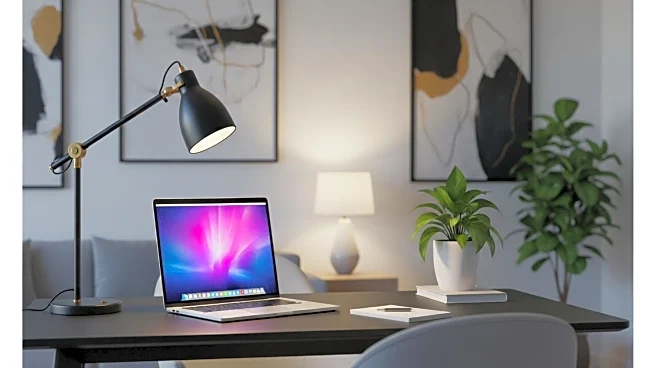What's Happening?
A recent exploration into the living arrangements of six young tech founders reveals a unique blend of personal and professional spaces. These founders, operating in the fast-paced startup environment, have adapted their apartments to serve as both living quarters and office spaces. Regina Lin, cofounder of ThirdLayer, exemplifies this trend by utilizing a live/work-zoned loft previously occupied by another startup. The loft, owned by their investor, features a main floor with desks and a kitchen, while beds are located upstairs. This setup allows founders to maximize productivity, often working late into the night and sleeping on company couches. The communal areas are used for social media content creation and hosting guests, reflecting a culture where work and personal life are intertwined.
Why It's Important?
The integration of living and working spaces among tech founders highlights a shift in startup culture towards more flexible and unconventional work environments. This trend may influence broader industry practices, encouraging companies to rethink traditional office setups in favor of more adaptable spaces that cater to the needs of modern entrepreneurs. The ability to work and live in the same space can enhance productivity and foster a collaborative atmosphere, which is crucial for startups aiming to innovate rapidly. However, it also raises questions about work-life balance and the potential for burnout, as the boundaries between personal and professional life become increasingly blurred.
What's Next?
As this trend continues, it may prompt discussions among industry leaders and urban planners about the future of workspaces. Companies might explore hybrid models that offer employees the flexibility to work from home while maintaining access to communal office spaces. Additionally, investors and landlords could see opportunities in developing properties that cater to the unique needs of startups, such as live/work-zoned lofts. The evolution of these spaces could lead to new standards in workplace design, emphasizing adaptability and integration.
Beyond the Headlines
The blending of living and working spaces among tech founders may have deeper implications for urban development and housing markets. As more startups adopt this model, there could be increased demand for properties that support hybrid living arrangements, potentially influencing real estate trends. This shift might also impact cultural norms around work, as younger generations prioritize flexibility and integration over traditional office environments. The long-term effects could reshape societal expectations of work-life balance and redefine the concept of home.









